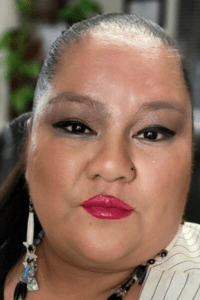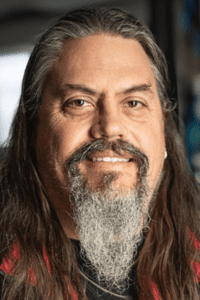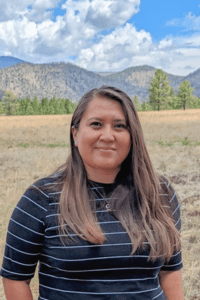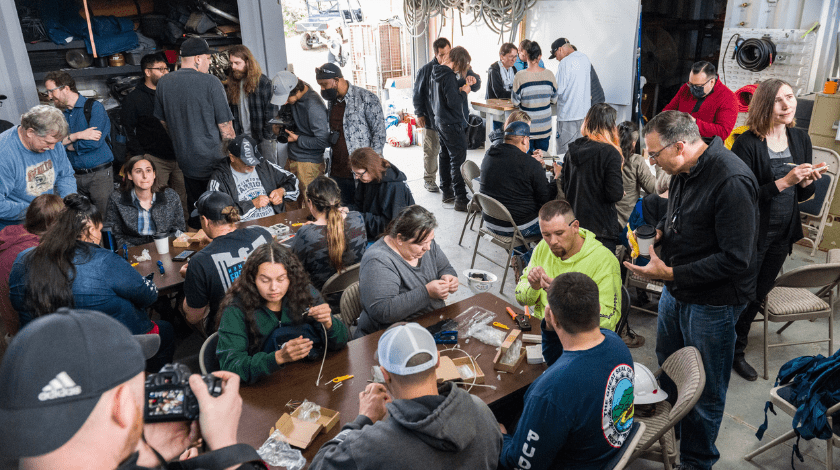By Cristal Mojica
As we embark upon the new year, we are thrilled to continue growing our Digital Equity in Tribal Communities project by supporting the Tribal Resource Center (TRC), a Native American-led non-profit initiative under People-Centered Internet that is dedicated to offering trustworthy guidance for tribal communities seeking greater access to broadband.
Digital inequity is especially apparent on tribal lands in California, with over a quarter of households lacking broadband service at 100 Mbps speeds. Where there is service available, it is frequently unstable, which affects access to education, healthcare, job opportunities, and critical emergency response services during natural disasters. Many of California’s tribal communities also lack access to the technical expertise and specialized skills needed to sustainably manage their own broadband networks, an essential milestone on the journey to achieving digital sovereignty.
Through two new projects, we will further TRC’s efforts to provide the resources necessary to ensure successful connectivity projects while acknowledging, reviving, and strengthening Native American communities through broadband. Learn more about the projects below:
Tribal Community Forum and Community of Practice
In summer of 2023, the Tribal Resource Center created a new online platform, “The Community Forum,” which was born out of an understanding of the need for a community forum and community of practice for Tribal leaders working in the broadband and digital equity space. This year, we will expand TRC’s capacity to manage the forum, build out its content, and continue to further the conversations coming out of the Tribal Broadband Bootcamps. Through the effort, we aim to create space and a supporting platform through which best practices are disseminated across tribes in California and beyond.
Additionally, TRC will coordinate the “Tribal Community Forum” around two virtual conveinings, which will be hosted on TRC’s website. These resources will also be distributed to communities through relevant channels.
Tribal Public-Private Partnerships Resources
The Michelson Tribal Communities Project Advisory Committee identified a need for resources designed to equip and empower communities to make informed decisions on the necessary public-private partnerships for broadband infrastructure projects, including how to manage those partnerships.
Through Tribal Public-Private Partnerships (TPPP), TRC will work to enhance capacity building within Tribal communities as they enter the implementation phase of their Middle Mile and Last Mile projects. The resources developed aim to provide critical partnership management guidance and share lessons learned across tribes. They will also aid tribes in retaining as much critical funding within their communities as possible by giving them the tools to successfully vet and manage private sector partners. As a result, all California tribes will be adequately equipped to enter partnerships that will successfully result in the infrastructure work for which they are contracted. The resources will cover:
- Partner qualifications checklist
- Guidelines for scoping contracts
- Advice for how to manage vendors
- Best practices for conducting reference checks
- Case studies (i.e.: managing contract closeouts)
- Sustainability planning / financial feasibility analysis
Advisory Committee
As TRC embarks upon these projects, we would like to extend sincere appreciation for our 2023-2024 Tribal Communities Project Advisory committee. Their continued expertise and guidance will make a tangible difference as Tribal nations in California and beyond achieve digital equity and digital sovereignty.
 Linnea Jackson, General Manager, Hoopa Valley Public Utilities District
Linnea Jackson, General Manager, Hoopa Valley Public Utilities District
Linnea Jackson is a member of the Hoopa Valley Tribe in Northern California and a descendant of the Karuk, Tolowa, Yurok, and Wiyot Tribes. She serves as General Manager for the Hoopa Valley Public Utilities District (HVPUD), which manages the reservation’s domestic and irrigation water, solid waste management, broadband and energy projects. Jackson has worked on a broad range of issues relating to land and the environment, she has also been responsible for land acquisitions and tribal land assignments, including residential, grazing, and agricultural efforts. Jackson also serves on the Hoopa Valley Tribe’s Land Commission.
 Matthew Rantanen, Director of Technology, Southern California Tribal Chairmen’s Association
Matthew Rantanen, Director of Technology, Southern California Tribal Chairmen’s Association
Matthew R. Rantanen, an expert in Native American policy and community relations, is the Director of Technology for the Southern California Tribal Chairmen’s Association (SCTCA). Rantanen, who is of Finnish, Cree Indian, and Norwegian descent, has been described as a “cyber warrior for community networking.” He is an advocate for net-neutrality, broadband for all, and opening more spectrum for public consumption.
 Davida Delmar, Digital Inclusion Manager, Critical Infrastructure Team, AMERIND
Davida Delmar, Digital Inclusion Manager, Critical Infrastructure Team, AMERIND
Davida Delmar is the Digital Inclusion Manager on the Critical Infrastructure Team at AMERIND. She brings with her a background in Public Administration, Facilitation, Community Engagement, and working with Tribal Communities. Delmar leads AMERIND’s partnership with the National Digital Inclusion Alliance (NDIA) to bring Digital Navigators to more Tribal communities.
Michelson 20MM is a private, nonprofit foundation working toward equity for underserved and historically underrepresented communities by expanding access to educational and employment opportunities, increasing affordability of educational programs, and ensuring the necessary supports are in place for individuals to thrive. To do so, we work in the following verticals: Digital Equity, Intellectual Property, Smart Justice, Student Basic Needs, and Open Educational Resources (OER). Co-chaired and funded by Alya and Gary Michelson, Michelson 20MM is part of the Michelson Philanthropies network of foundations.
To sign up for our newsletter, click here.
